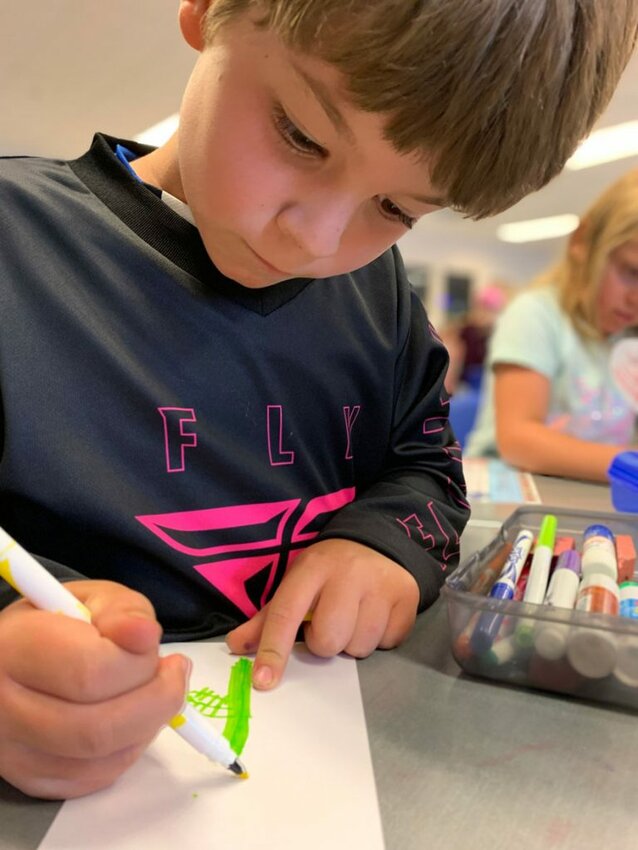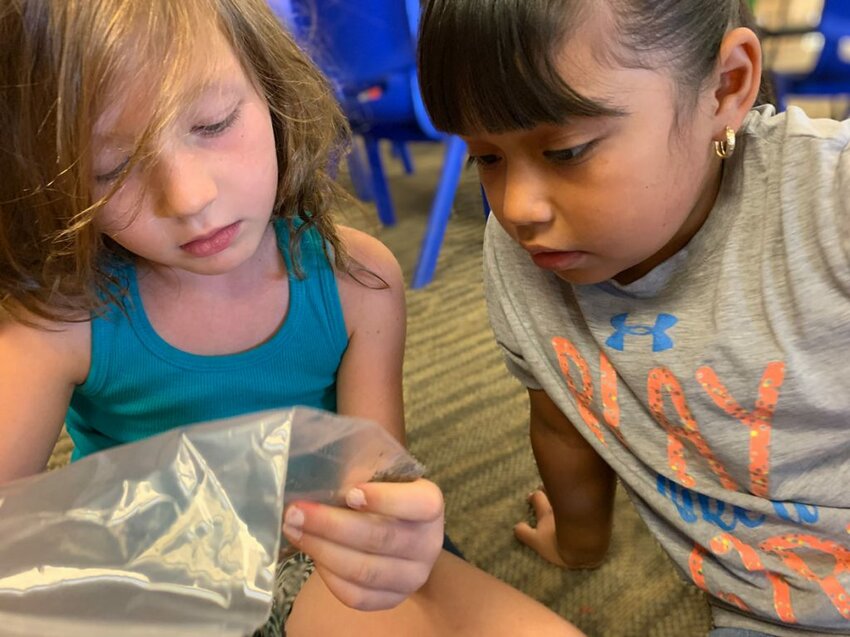Alice plants basil seeds for students to watch under their classroom grow light.

After being asked what they know about pollinators, Elias began a drawing of a sunflower. He said, “Bugs like flowers.”

Sedona and Lupita examine mystery seeds and try matching them to pictures of plants.
By Emily Murphy
Pagosa Peak Open School
Basil, beet seeds and butterflies occupy Pagosa Peak Open School elementary students grades 1-3. The summer start to the school year gives teachers and students more time together during Pagosa’s growing season, and teachers are taking advantage of it.
“We’re going to have so much fun with this pollinator project,” Kelle Bruno said about her first project of the year.
“The Secret Life of Pollinator” investigations have already begun with things like seed sorting and planting. Bruno’s extensive background in farming flares her passion for this project and provides students with excellent community connections and background knowledge.
Fawn Firestone, PPOS’s second/third-grade teacher, is joining forces with Bruno, creating a collaborative approach between teachers and grades as students grapple with the question, “How do pollinators help plants and animals survive?”
Small groups will have a chance to investigate different pollinators from the wind to ladybugs, working toward a place-based presentation of pollinators for local gardening experts. Students are looking forward to field work at Bruno’s current farm and trips to the Geothermal Greenhouse Partnerships to talk with Pagosa growers about pollinators in our area.
While working within science and language standards, students will also be considering their own impact on the environment. Throughout the project, students participate in activities that help them answer the question, “How can I show compassion and contribute to a better world?”
Through authentic, meaningful projects such as these, students feel the importance behind the work they’re doing.
“We need plants to survive, and plants need nutrients to survive. Without plants, we wouldn’t be alive,” first-grader Amalie said.